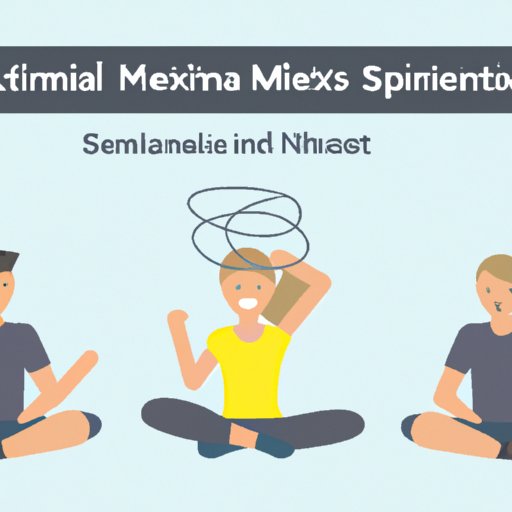Introduction
Mental health is a term used to describe the general wellbeing of an individual’s cognitive, emotional and psychological state. It involves how people think, feel and behave in their everyday lives. Exercise has long been known to have numerous physical benefits, but research has increasingly shown that it can also have significant positive effects on mental health.

Exploring the Physiological Effects of Exercise on Mental Health
Physical activity can help reduce stress and anxiety by releasing endorphins, which are chemicals in the brain that act as natural painkillers and improve mood. Exercise can also reduce cortisol levels, which is the body’s primary stress hormone. Regular physical activity can help to reduce the symptoms of mild to moderate depression and other mental illnesses. Research has also shown that exercise can improve mood and self-confidence, as well as increase self-esteem.
Studies have found that regular physical activity can be as effective as medication in treating mild to moderate depression. According to a study by the Harvard T.H. Chan School of Public Health, “exercise appears to be a promising intervention for reducing symptoms of depression”.
Examining the Cognitive Benefits of Exercise
Regular exercise can help improve memory and concentration, as well as overall cognitive functioning. This is because exercise increases blood flow to the brain, which helps to improve oxygen levels and stimulate the growth of new neural pathways. In addition, regular physical activity can help to reduce age-related cognitive decline and decrease the risk of developing dementia or Alzheimer’s disease.
Research has also found that regular physical activity can help to reduce the symptoms of ADHD in both children and adults. According to a study published in the Journal of Attention Disorders, “there is evidence that regular physical activity improves attention and decreases impulsivity in individuals with ADHD”.

Analyzing the Social Benefits of Exercise
Social interaction is an important aspect of mental health and exercise can provide opportunities for social interaction. Participating in group activities such as sports, walking groups or yoga classes can help to build relationships and promote feelings of connectedness. Community-based activities such as these can also help to reduce feelings of isolation and loneliness, which can often lead to depression and anxiety.
Research has found that participating in regular physical activity can help to reduce the symptoms of social anxiety. A study by the University of Michigan found that participants who engaged in regular physical activity had lower levels of social anxiety than those who did not participate in physical activity.
Conclusion
In conclusion, this article has explored the various ways exercise can positively impact mental health. Regular physical activity can reduce stress and anxiety levels, improve mood and self-esteem, help with memory and concentration, and provide social interaction opportunities. Exercise can also be used to treat mild to moderate depression and other mental illnesses. All of these factors demonstrate the importance of exercise in maintaining good mental health.
(Note: Is this article not meeting your expectations? Do you have knowledge or insights to share? Unlock new opportunities and expand your reach by joining our authors team. Click Registration to join us and share your expertise with our readers.)
